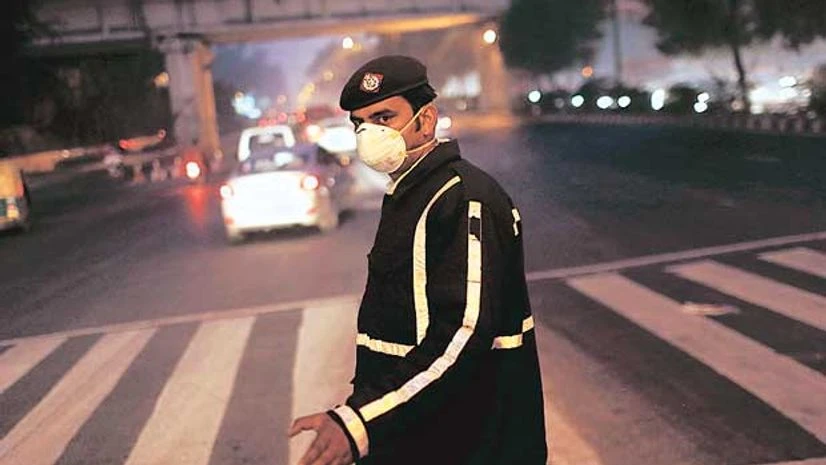Stubble burning in neighbouring states of Punjab and Haryana has led to a decline in the national capital's air quality, while a thick blanket of haze continues to envelop Mumbai on Sunday.
The air quality index (AQI) recorded in the national capital was 235, which is considered hazardous, while pollution levels in Mumbai soared earlier in the day with air quality plummeting to the poor category (AQI:183), according to System of Air Quality and Weather Forecasting and Reseach (SAFAR).
The organisation has predicted that for the next three days, the AQI in Mumbai will hover around 184.
The national capital, on the other hand, will witness pleasant mornings with thick mist and haze. The days will be warm and sunny with a maximum temperature of around 32 degree Celsius, as per Skymet Weather.
After Cyclone Titli weakened into deep depression, heavy rainfall is likely to occur at many places over the districts of Coastal Odisha and at a few places over the districts located in the interior of this region, as predicted Indian Metereological Department (IMD), Bhubaneswar. The cyclone has also claimed eight lives in Andhra Pradesh and is estimated to have caused a loss of property and infrastructure worth Rs 28 billion.
According to a study released by the United Nations Office for Disaster Risk Reduction (UNISDR) in October, climate change is hampering development in low- middle-income countries like. The study stated that India suffered economic losses of $80 billion during a span of 20 years between 1998 to 2017.
It also stated that the floods, earthquakes, and storm are just not confined to India but occur in European countries as well. "Three European countries are in the top 10 nations have suffered a maximum economic loss on account of these climate changes disasters- France ($48 billion), Germany ($58 billion), and Italy ($57 billion).

)
